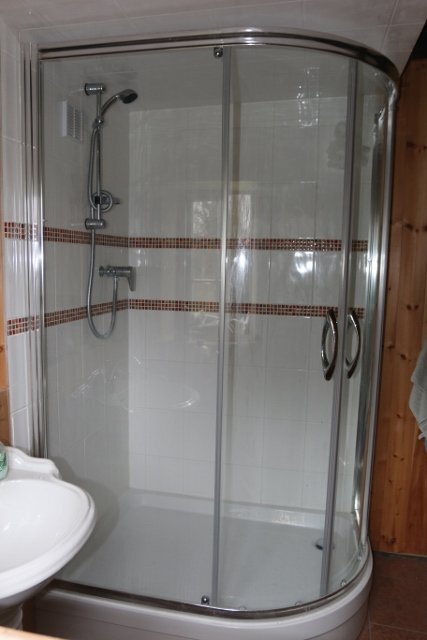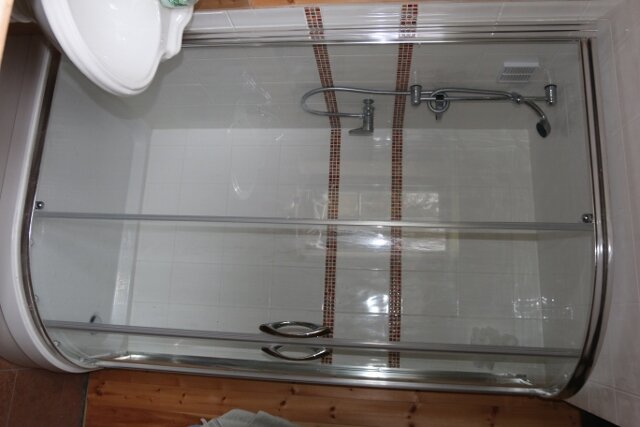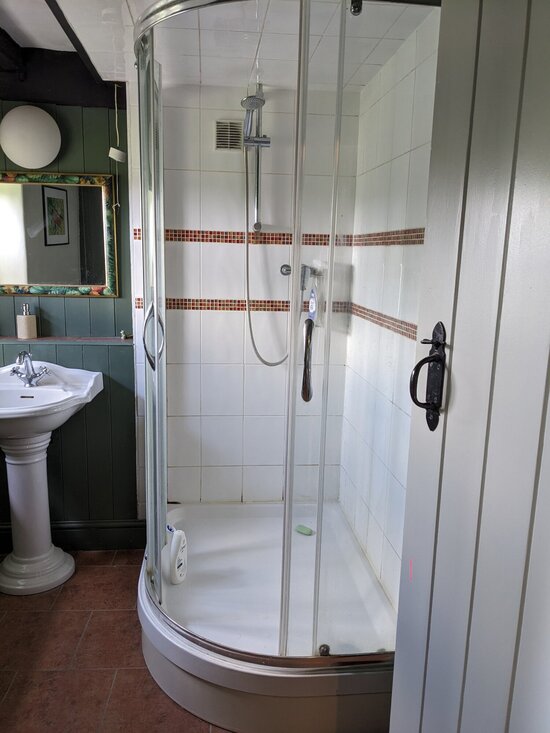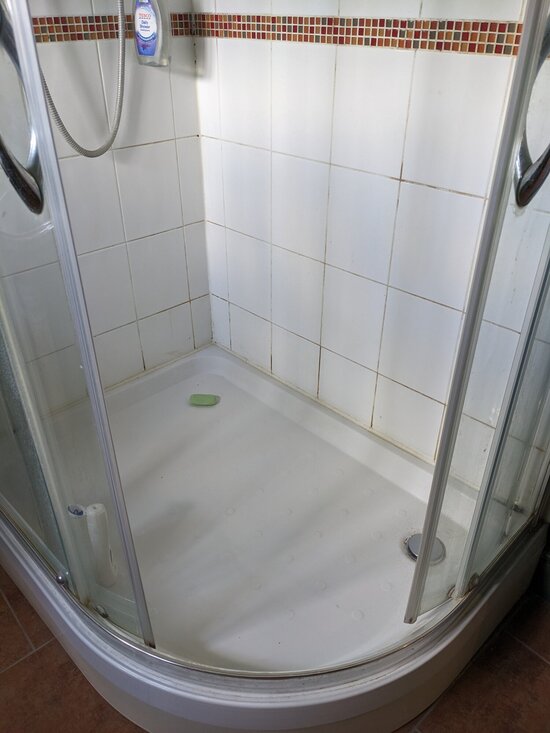Whoosh - another 10 years gone by!
Someone might be interested in another update so here are a couple of photos I've just taken of the shower cubicle in question.
12 years of almost daily use since it was finished there have been no leaks, no cracks, no tiles have dropped off, in fact no problems at all except a bit of discolouration of the grout.
Not bad for a DIY job, considering most of the advice was to use cheaper and faster materials. I understand this because professionals are always under price and time pressure, but at the risk of being controversial I'd suggest that most DIYers are capable of as good if not better results than most professionals, as long as they take their time.
In my case, I spent a ludicrously long time to build this shower cubicle (in fact, it was a completely new room), which would never have been acceptable to any professional's customers. Also, because I was saving loads by not having to pay someone, the materials costs were not as important as they would be for a professional. So when I built the stud wall to create this shower room I used treated 4x2 C24 structural studs instead of the more 'normal' 3x2 carcassing timber, plus I spaced them closer than 'normal' for extra strength. Basically, I over-engineered the whole job but the extra cost of the materials was probably only a few £100 (this was 12 years ago!).
So it's an interesting dilemma. Pay a professional for a fast job or DIY and save a lot of money? The big factor, of course, is time and the fact that I have plenty of it, being retired. But when the job is finished, only the end result is important because no one ever asks 'how long did that take?' and it's only the final quality that matters.




